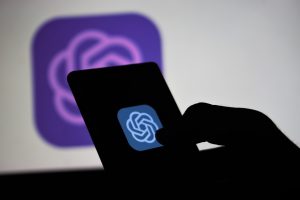 Artificial intelligence (AI) is rapidly transforming the landscape of higher education, prompting both excitement and uncertainty. From generative tools like ChatGPT to automated grading systems and predictive analytics, AI is reshaping how instructors teach, assess, and prepare students for their careers. As these technologies become more sophisticated, educators are faced with new questions about the role of AI in student learning:
Artificial intelligence (AI) is rapidly transforming the landscape of higher education, prompting both excitement and uncertainty. From generative tools like ChatGPT to automated grading systems and predictive analytics, AI is reshaping how instructors teach, assess, and prepare students for their careers. As these technologies become more sophisticated, educators are faced with new questions about the role of AI in student learning:
- How can educators help students use AI effectively in their learning?
- Why is it important for students to continue learning and developing expertise despite the capabilities of AI?
- How can students differentiate themselves in a job market increasingly influenced by AI?
Illysa Izenberg, Associate Teaching Professor in JHU’s Center for Leadership Education, explores these questions in a recent article she wrote for The Teaching Professor. Izenberg currently teaches Engineering Management and Leadership, Management Theory and Practice, Workplace Ethics, and Foundations of the American Enterprise. Having spent several years in industry, she understands the importance of career readiness and takes a proactive approach to integrating AI into her classroom to help prepare students for the evolving workforce. In each of her classes, Izenberg explains to students her rationale for using AI, clearly outlines when and how they are to use AI in their course work, and provides guidance on how to cite AI sources, something she requires. Izenberg has also developed her own AI “chat-bot” to help students refine their prompting skills.
Management Theory and Practice, Workplace Ethics, and Foundations of the American Enterprise. Having spent several years in industry, she understands the importance of career readiness and takes a proactive approach to integrating AI into her classroom to help prepare students for the evolving workforce. In each of her classes, Izenberg explains to students her rationale for using AI, clearly outlines when and how they are to use AI in their course work, and provides guidance on how to cite AI sources, something she requires. Izenberg has also developed her own AI “chat-bot” to help students refine their prompting skills.
The article can be accessed here if you have an account with the Teaching Professor, or here if you do not have an account.
Amy Brusini, Senior Instructional Designer
Center for Teaching Excellence and Innovation
Image source: Unsplash, JHU Whiting School of Engineering website
